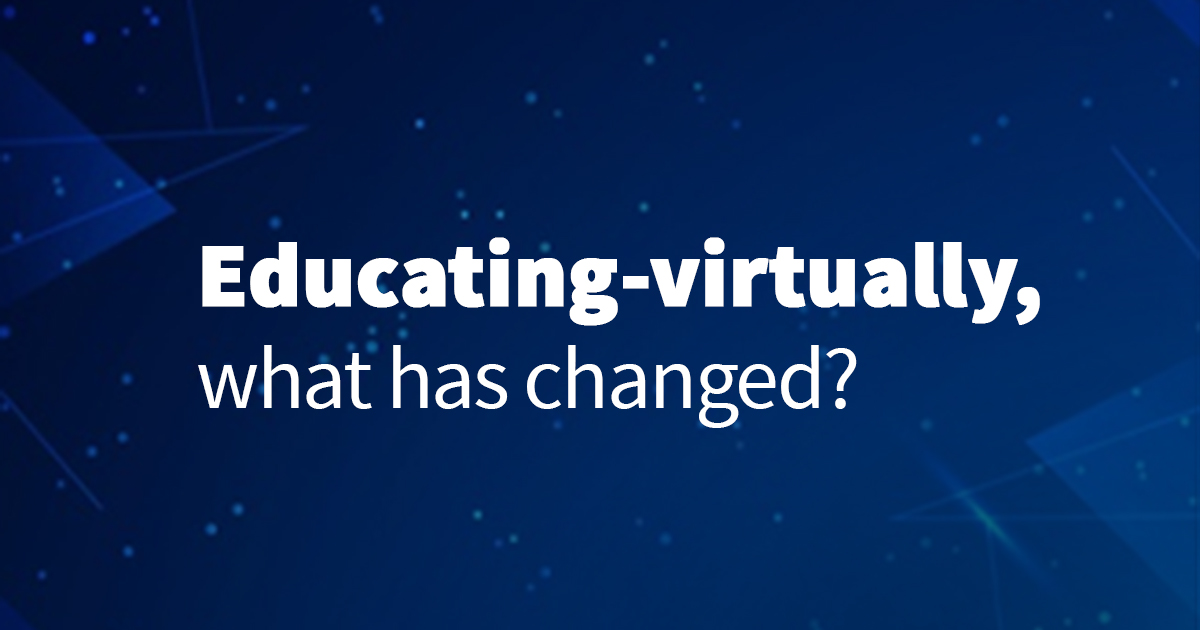Educating-virtually! What has changed?
- Professional Skills
Lectures on zoom, mentoring sessions over conference calls, notes over WhatsApp – the present tools being used are just ways replicating the physical environment with a virtual one. This is a change of medium, not a change in pedagogy. But as we get used to the new normal, the very way learning is done will change.
In her blog ‘The Shape of Education & Training to come’, Kirti Seth Lead – FutureSkills NASSCOM, puts an emphasis on how ‘Knowing’ as a concept will be preceded by ‘Doing’ in the time to come. With technology, millions of ‘gig workers’ have been able to excel in careers through specializations and not degrees. Blurred lines between underrated value of skills and overrated value of mere degrees have begun to vanish. Quality of work is now being valued more than the letters behind names.
The making of experiential learning...
The success of EdTech platforms, which offer gamified technologies to make learning an experience in itself, has been a game changer in the world of education. When micro-learning takes over degrees in a bite sized learning culture, the future of education is bound to undergo a transformation, points Kirti in the blog. The blog further outlines how COVID-19 pandemic has played a significant role in backing this shift of education to a virtual world and has accelerated the scale of transformation.
What happens to classrooms, next?
The blog foresees that, once opened up, classrooms won’t serve the purpose of learning itself but of collaboration, experiment and experience of the learners. But, if the enablers won’t accept and explore the change, then the change in itself won’t be very plausible.
The fact that continuous learning and development needs to be a part of every profession for career advancement applies to teachers as well. As Kirti states, ‘A teacher’s role will be to inspire not inform’. The change is not going to be bold enough if the teachers fail to get their students engaged virtually and learn to use technology. If the lectures continue to remain as exciting (or boring) even virtually, then our idea of a transformation will lose its magnetism. Read more about the exploration of this idea here.
How continuous learning makes a difference?
Continuous learning in organizations is like a master key whenever there’s a need to cope with change just as this pandemic. Individuals who upskill themselves to keep up with the trends are less likely to get affected by any change whatsoever. As they develop a creative thinking and problem solving mindset, it prepares them to battle any challenge that may arise in the future as well.
The teachers, who sharpened their digital skills were able to thrive such a major change, the ones who refrained the change were simply pushed out of the game. Those who became tech-friendly will be able to manage a blended learning setup as things begin to normalize; for those who didn’t, huge challenges await.
Now you know why continuous learning as a concept is becoming everyone’s favourite!
Looking how to be a part of the continuous learning loop?
Get associated with a program that aims to make India the global hub of talent in the emerging technologies and is offering a variety of continuous learning opportunities!
NASSCOM FutureSkills PRIME is a robust online platform to encourage remote and self-paced learning. Here, learners can attain ‘digital fluency’ and get certified in industry-validated and government approved courses. Also, get access to trending tools like Skills passport, and learn through micro-credentials based and NSQF aligned industry curated courses.
Rush into skill courses, professional courses and soft skills courses with NASSCOM SSC Certification for everyone with passion to upskill and be a part of the Digital Transformation!
Get enrolled now!
#SkilledForFuture


